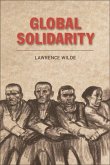What divides and what unites an ethnically diverse citizenry? Do multicultural policies cause ethnic conflict or do they form the basis for wider loyalties? George Vasilev addresses these vexed questions. He argues against critics who claim that group representative measures are incompatible with solidarity. Instead, he explains how they provide the incentive structure needed for inter-ethnic cooperation. By looking beyond the representative institutions of the nation state, Vasilev shows us how NGOs, international institutions and opinion leaders are becoming increasingly important in cultivating interethnic openness.
Dieser Download kann aus rechtlichen Gründen nur mit Rechnungsadresse in A, B, BG, CY, CZ, D, DK, EW, E, FIN, F, GR, HR, H, IRL, I, LT, L, LR, M, NL, PL, P, R, S, SLO, SK ausgeliefert werden.









